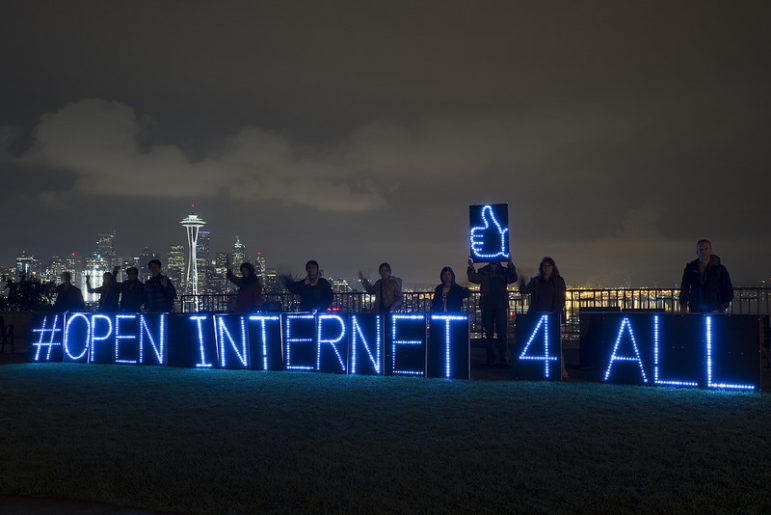
June 14, 2016; Consumerist and the New York Times
One of the stories NPQ called out as the most important of 2014 was the fight to preserve “net neutrality,” the idea that the speed at which one accesses a website should be agnostic of that site’s content. Opponents of net neutrality would prefer an Internet marketplace where cable companies and service providers could establish faster lanes for sites with approved or sponsored content and slow or degrade access to websites that were not so favored.
When last we visited the topic in February 2015, the FCC had ruled that the solution was to treat high-speed Internet as a Title II utility, like electricity or landline telephone service, and accordingly prohibit attempts to block, throttle, or prioritize service based on content. Yesterday, after months of legal challenge from a cohort of telecoms, ISPs, and interested parties, and more than two years after the initial decision in favor of Verizon, the U.S. Court of Appeals for the D.C. Circuit upheld the FCC’s reclassification decision. In the 184-page majority opinion, the Court affirmed that the net neutrality maintained by the Open Internet Order should continue.
Sign up for our free newsletters
Subscribe to NPQ's newsletters to have our top stories delivered directly to your inbox.
By signing up, you agree to our privacy policy and terms of use, and to receive messages from NPQ and our partners.
Net neutrality upheld in court
As Cecilia Kang of the New York Times summarized, “The decision affirmed the government’s view that broadband is as essential as the phone and power and should be available to all Americans, rather than a luxury that does not need close government supervision. […] The court’s decision upheld the FCC on the declaration of broadband as a utility, which was the most significant aspect of the rules. That has broad-reaching implications for web and telecommunications companies that have battled for nearly a decade over the need for regulation to ensure web users get full and equal access to all content online.”
Naturally, this doesn’t mean the fight is over; a senior executive VP from AT&T have been champing at the bit to see this issue taken before the Supreme Court. However, Tom Wheeler, chair of the FCC, showed great confidence: “Today’s ruling is a victory for consumers and innovators who deserve unfettered access to the entire web, and it ensures the internet remains a platform for unparalleled innovation, free expression and economic growth.”—Jason Schneiderman











